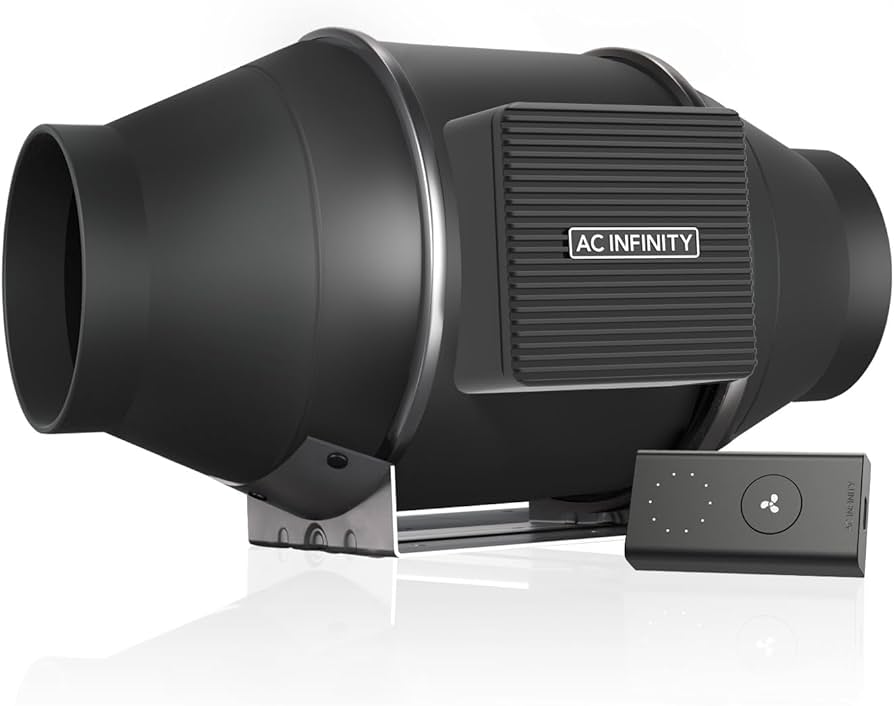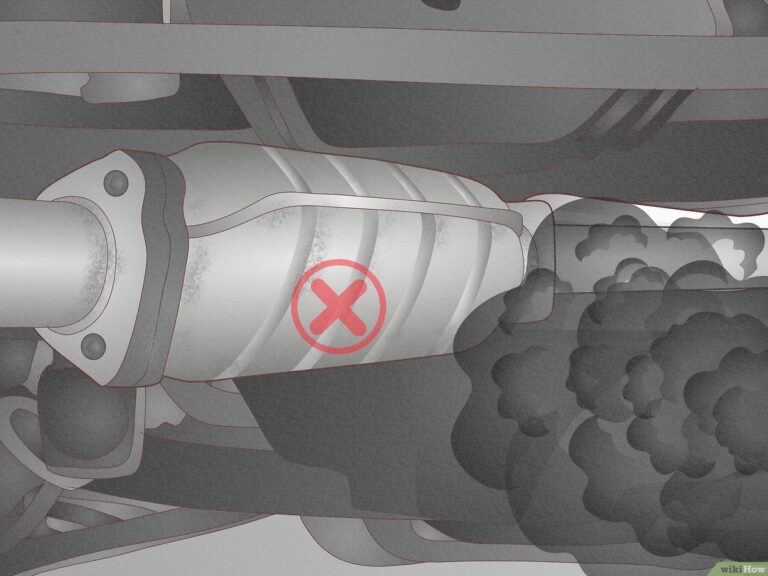Do I Need a Muffler? Discover the Power Behind a Silent Ride
Yes, you need a muffler for your vehicle as it helps reduce noise and control emissions. A muffler is an essential component of a vehicle’s exhaust system.
Its primary function is to reduce the noise produced by the engine by redirecting and muffling the sound waves generated during combustion. In addition to noise reduction, a muffler also helps control emissions by allowing the exhaust gases to flow through catalytic converters and filters, which help reduce harmful pollutants.
Without a muffler, your vehicle would emit excessive noise and pollutants, which can be both inconvenient and harmful to the environment. Therefore, it is necessary to have a properly functioning muffler for a quieter and more environmentally friendly driving experience.
Understanding The Basics Of A Muffler
Understanding the Basics of a Muffler
A muffler is an essential component of a vehicle’s exhaust system. It is designed to reduce the noise produced by the engine during its operation. Additionally, it helps to minimize vibrations that can occur as a result of the combustion process. With its cylindrical shape, the muffler contains a series of chambers and tubes that create a path for exhaust gases to flow through. As the gases pass through the muffler, they encounter baffles and sound-absorbing materials. These elements work together to dampen and dissipate the sound waves, resulting in a quieter exhaust system.
Furthermore, mufflers play a crucial role in emission control. They contain components that help to reduce the amount of harmful pollutants that are released into the atmosphere. As the exhaust gases travel through the muffler, catalytic converters and other emissions control systems help to convert toxic compounds into less harmful substances. This allows the vehicle to meet emissions regulations and contribute towards a cleaner environment.
| Benefits of Mufflers | Function |
|---|---|
| Reduces engine noise | Minimizes noise and vibrations |
| Aids in emission control | Converts pollutants into less harmful substances |
Signs That Indicate The Need For A Muffler Replacement
A failing muffler can be identified through common symptoms that manifest in your vehicle. Firstly, if you notice increased noise coming from the exhaust system, it may indicate a problem with the muffler. Additionally, if you observe a decrease in fuel efficiency or an increase in exhaust emissions, a faulty muffler may be the cause. Another sign to look out for is the presence of unpleasant odors coming from the exhaust system.
A failing muffler can have detrimental effects on your vehicle’s performance. It can lead to reduced engine power and poor acceleration. Moreover, a faulty muffler can also affect the overall fuel efficiency and cause the engine to overheat. It is crucial to address these issues promptly to prevent further damage to your vehicle.
Regular inspections and maintenance are essential to ensure the proper functioning of your vehicle’s muffler. By inspecting the exhaust system regularly, you can identify any signs of wear and tear and address them before they escalate. Maintaining a well-functioning muffler improves overall vehicle performance and helps to keep emissions within acceptable limits.
Exploring The Benefits Of A Well-maintained Muffler
A well-maintained muffler can significantly enhance the overall driving experience by providing a silent ride. The muffler effectively reduces the noise generated by the exhaust system, making the journey more peaceful and enjoyable for both the driver and the passengers.
Additionally, a properly functioning muffler can also contribute to improving fuel efficiency and enhancing the durability of the exhaust system. By minimizing back pressure and optimizing the exhaust flow, the muffler helps the engine to perform more efficiently. This, in turn, can lead to better fuel economy and longer-lasting components.
Moreover, a well-maintained muffler plays a crucial role in reducing harmful emissions, thus contributing to a cleaner environment. By effectively dampening the noise and controlling the exhaust gases, the muffler helps reduce pollution and make our surroundings more eco-friendly.
Factors To Consider When Choosing A Muffler
htmlWhen selecting a muffler, there are several key factors to keep in mind:
- Different types of mufflers and their unique characteristics: There are various types of mufflers available, each with its own distinct features. Some common types include chambered mufflers, turbo mufflers, and straight-through mufflers. Understanding the characteristics of each type can help you determine the most suitable option for your vehicle.
- Compatibility with the vehicle’s engine and exhaust system: It’s crucial to choose a muffler that is compatible with your vehicle’s engine and exhaust system. Consider factors such as the engine’s size, horsepower, and exhaust gas flow to ensure optimal performance and efficiency.
- Considerations for noise regulations and personal preferences: Many regions have regulations regarding the permissible noise levels for vehicles. Ensure that the muffler you select complies with these regulations. Additionally, personal preferences regarding the desired level of exhaust sound should also be taken into account.
The Process Of Muffler Installation And Maintenance
Replacing a muffler is an important aspect of vehicle maintenance that can significantly affect its performance and noise emission. When opting for a professional installation, ensure that you select a reputable mechanic with expertise in exhaust systems. They will carefully remove the old muffler and install the new one, adjusting it to ensure proper alignment and seal, which will prevent any leaks. A professional installation guarantees that the job is done correctly and efficiently, saving you time and potential complications.
Alternatively, you may consider a DIY installation. This option requires specific tools and technical knowledge, so it is crucial to carefully follow the manufacturer’s instructions. Steps typically involve removing the old muffler, attaching the new one, and securing it with clamps or welds. While cost-effective, DIY installations pose the risk of improper alignment or installation, leading to performance issues or even damage to the vehicle.
Proper maintenance is key to extending the lifespan of your muffler. Regularly inspect the muffler for any signs of damage or corrosion, such as rust or holes. Cleaning the muffler with a wire brush and applying heat-resistant paint can help prevent rust. Additionally, avoid driving over rough terrain or through deep water, as this can damage the muffler. Finally, scheduling regular maintenance check-ups with a professional mechanic will ensure any issues are identified and resolved promptly, preventing further damage to the muffler and your vehicle’s exhaust system.
Myth Busting: Misconceptions About Mufflers
There are several common misconceptions surrounding mufflers and their effects that we aim to address in this post. Let’s dispel some rumors:
Myth 1: Mufflers reduce engine power and performance.
Contrary to popular belief, mufflers do not significantly impact engine power and performance. They are designed to reduce noise produced by the exhaust gases without significantly obstructing the flow of the exhaust. Modern mufflers are optimized to strike the right balance between noise reduction and preserving engine efficiency.
Myth 2: Removing the muffler will increase horsepower.
While removing the muffler may provide a marginal increase in horsepower, it is illegal in many jurisdictions due to noise and emissions regulations. Additionally, removing the muffler can negatively impact the overall exhaust system’s performance and cause a loud and unpleasant noise.
Myth 3: All mufflers produce the same sound.
Mufflers come in various designs and materials, which can result in different sounds. Some mufflers are designed to produce a deep and throaty rumble, while others aim for a quieter and more refined sound. It’s important to consider personal preference and local noise regulations when choosing a muffler.
| Common Misconceptions | Reality |
|---|---|
| Mufflers reduce engine power and performance. | Mufflers have minimal impact on engine power and are designed for noise reduction. |
| Removing the muffler increases horsepower. | While it may provide a slight increase, it is often illegal and can harm performance. |
| All mufflers produce the same sound. | Mufflers come in various designs, resulting in different sounds. |
The Future Of Mufflers: Innovations And Trends
The automotive industry is constantly evolving, and muffler technology is no exception. With advancements in automotive engineering, the future of mufflers holds exciting possibilities.
One of the latest advancements in muffler technology is the development of eco-friendly solutions. With a growing concern for the environment, manufacturers are focusing on creating mufflers that reduce emissions and improve fuel efficiency. These eco-friendly mufflers utilize innovative materials and advanced engineering techniques to minimize noise pollution and carbon emissions.
Looking ahead, the future of mufflers also predicts a shift towards silent rides. With the advent of electric and hybrid vehicles, mufflers may not be necessary at all. These vehicles operate quietly, providing a serene driving experience without the need for traditional mufflers.
In conclusion, the future of mufflers is moving towards eco-friendly solutions and silent rides. Innovations in muffler technology will play a crucial role in reducing emissions and improving the overall driving experience.

Credit: www.vespa.com
Frequently Asked Questions Of Do I Need A Muffler
Is It Ok To Drive Without A Muffler?
Driving without a muffler is not recommended. It can increase noise pollution and may violate local noise regulations. Additionally, a muffler helps reduce toxic emissions and improve engine performance. Be sure to have a properly functioning muffler for a smooth and eco-friendly driving experience.
How Necessary Is A Muffler?
A muffler is necessary to reduce noise and control emissions in a car’s exhaust system. It helps the engine run smoothly and makes driving more comfortable. Without a muffler, the exhaust noise would be loud and harmful to the environment.
Does Removing A Muffler Hurt Your Car?
Removing a muffler can potentially harm your car’s performance and cause noise pollution. It may disrupt the exhaust system’s balance, resulting in decreased fuel efficiency and engine damage. Hence, it is recommended to consult a professional before removing your car’s muffler.
What Are The Dangers Of Having No Muffler?
Not having a muffler can be dangerous as it increases engine noise, potentially causing hearing damage. It also leads to pollution, emitting harmful gases that harm the environment and people’s health. Additionally, not having a muffler can result in fines and penalties for violating noise regulations.
Conclusion
A muffler is an essential component of a vehicle’s exhaust system that serves multiple purposes. It reduces noise levels, improves overall engine performance, and helps to maintain the environment by reducing harmful emissions. In addition, a well-functioning muffler can prevent potential legal issues and costly fines.
Therefore, it is important to ensure that your vehicle has a properly functioning muffler to enjoy a quieter and more efficient driving experience.




